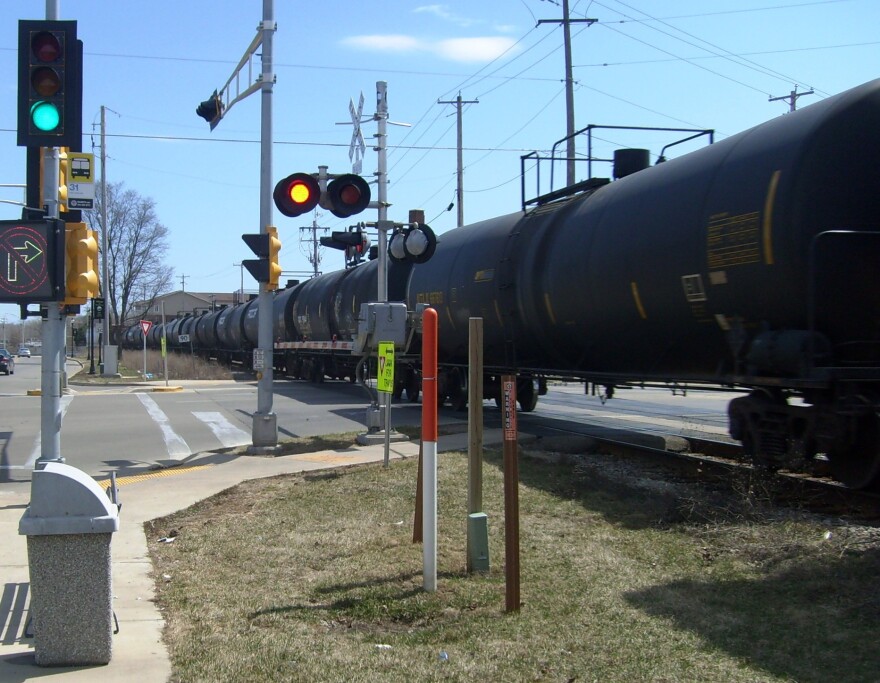Recent rail mishaps, including tragic derailments in Canada and Texas have put the focus on rail safety here and in other urban centers.
Frac sand and crude oil have caused a boom in the state’s freight rail industry. Wisconsin officials say trains are longer, heavier and more frequent, but insist the trains are also safe. Still, there have been accidents elsewhere, some deadly.
There are seven major railroads in the U.S. –three travel through metro Milwaukee hauling more than 200 trains a week including some that consist of all tank cars. Next week, the National Transportation Safety Board holds a forum on the safety of rail shipments of crude oil and other products.
Milwaukee Fire Department Deputy Chief Aaron Lipski coordinates Milwaukee’s emergency response team. He says safety is a top priority for freight railroads here.
“We have a great deal of training in dealing with all manner of fires and emergencies in the urban setting here. Tank cars that you seen transporting petroleum are really only part of the problem. A large number of these cars that look very similar to a tank car that would be transporting petroleum, they carry all manner of chemicals. The rail industry typically does a fantastic job maintaining the integrity of these tanks and inspecting their equipment and training their personnel. But, as experience shows, everything can’t be covered all of the time, and the problem in an urban area is that these rail lines pass very, very close to either residential areas, assembly locations, hospitals – places where just the large number of people, or the condition that some of the folks are in, would prevent them from being able to help themselves and the situation would grow so big, so quickly, that we could really sustain a large loss of life. We have an extremely highly trained hazardous materials team that also serves as the regional haz mat team. And, as good as they are, the collective expertise is not complete. There are a lot of nuances to the chemicals, a lot of nuances to the tank cars, the rail cars, they train with these folks in the industry all the time,” Lipski says.
Is it the railroads that help to stage this training and keep the various departments fresh with the latest technology, etc?
“There are several different outlets for the training for us. Training from the railroads specifically – different railroad firms have different means of doing that. Also, some of the larger industries –the petroleum industry for instance – holds a number of disaster or spill response scenario role play training sessions and they are extremely open for anybody that wants to go to those. I’ve attended a number of those and what they really do is they just get your mind thinking about what is unique about this kind of an emergency and what are some of the best practices nationwide for mitigating this emergency. If we needed to, we have the mutual aid box alarm system which we could get companies from as far away as Michigan and Illinois if we really needed them. I mean we’re really at a major disaster at that point. Depending on the scope and the size and complexity of this emergency, most definitely we would activate our emergency operations center which starts to bring together all of these various stakeholders.
We have members of our department who have received special training to manage that process because when you get a bunch of people who are essentially the heads of their organizations together, and you bring in this emergency government template, it has the potential for rapid and sudden failure if it’s not managed correctly. But, we have practiced this over and over and over again. The state’s been very good at helping us get this set up and what we have noticed is, just the familiarity –if I saw you on the street tomorrow, it would be a much better experience than if I had never met you before and just passed you by I wouldn’t even notice you. It’s the same thing with all of these different people who work in their own separate worlds and now all of a sudden you’re crashed together to solve a problem. If I at least have that familiarity, it makes everything just work better,” Lipski says.



